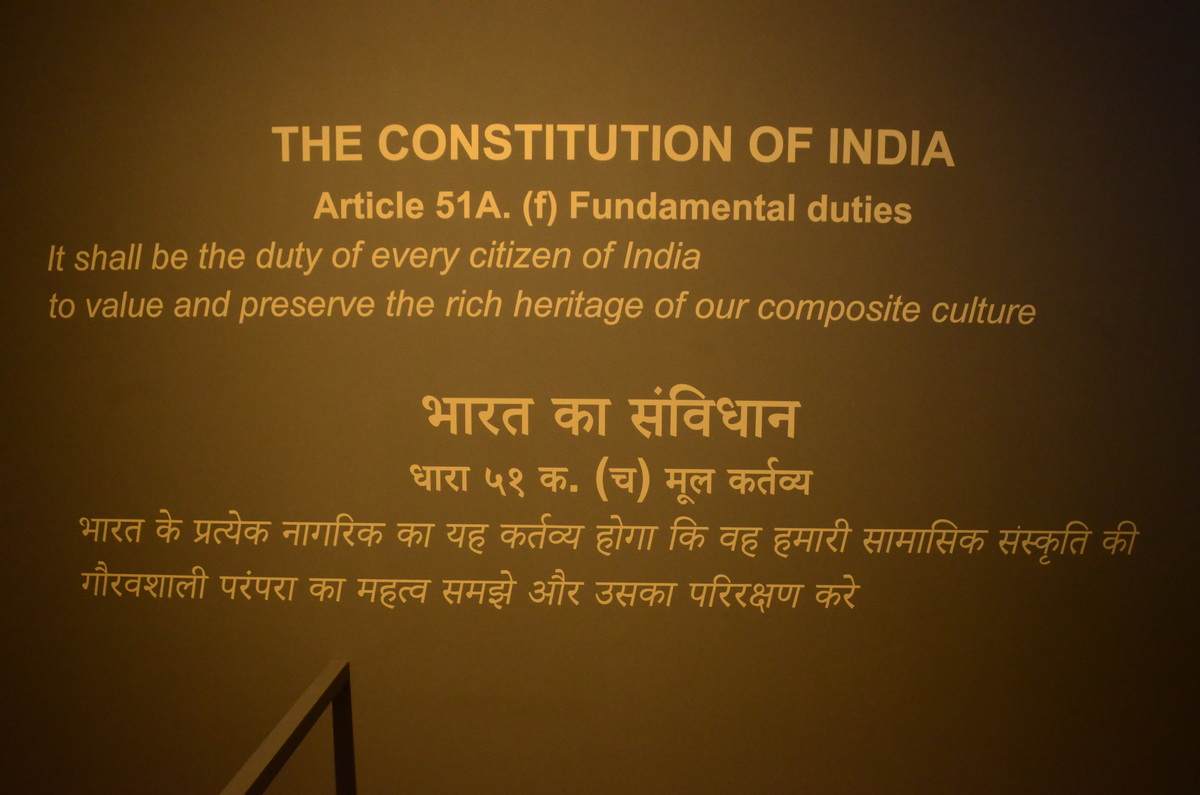The Fundamental Duties are dealt with in Article 51A under Part-IV A of the Indian Constitution. According to Article 51A:-
It shall be the duty of every citizen of India:
- To abide by the Constitution and respect its ideals and institutions, the National Flag and the National Anthem;
- To cherish and follow the noble ideals which inspired our national struggle for freedom;
- To uphold and protect the sovereignty, unity and integrity of India;
- To defend the country and render national service when called upon to do so;
- To promote harmony and the spirit of common brotherhood amongst all the people of India transcending religious, linguistic and regional or sectional diversities; to renounce practices derogatory to the dignity of women;
- To value and preserve the rich heritage of our composite culture;
- To protect and improve the natural environment including forests, lakes, rivers and wild life, and to have compassion for living creatures;
- To develop the scientific temper, humanism and the spirit of inquiry and reform;
- To safeguard public property and to abjure violence;
- To strive towards excellence in all spheres of individual and collective activity so that the nation constantly rises to higher levels of endeavor and achievement;
- Who is a parent or guardian to provide opportunities for education to his child or, as the case may be, ward between the age of six and fourteen years.
IMPORTANT POINTS:
- The chapter of “Fundamental Duties” is Instituted by the Constitution (Forty-second Amendment) Act, 1976, s. 11
(w.e.f. 3-1-1977). - The chapter of “Fundamental Duties” is instituted on the recommendation of Swaran Singh Committee.
- Article 51A (k) is Instituted by the Constitution (Eighty-sixth Amendment) Act, 2002, s.4 (w.e.f. 1-4-2010)
- The “Fundamental Duties” are non-justiciable, meaning they are not enforceable by law through the judiciary. However, they serve as moral obligations and guiding principles for citizens.
- The “Fundamental Duties” are confined to citizens only and do not extend to non-citizens.
IMPORTANCE OF FUNDAMENTAL DUTIES:
In the context of a nation, the Fundamental Duties of Indian Constitution refer to a set of duties prescribed for the citizens of that nation. They act as a reminder to the citizens that in addition to the enjoyment of rights, they also have to perform certain duties towards the nation they live in. In essence, Fundamental Duties can be summarised as a set of moral and ethical obligations that citizens are expected to uphold towards a nation.


